

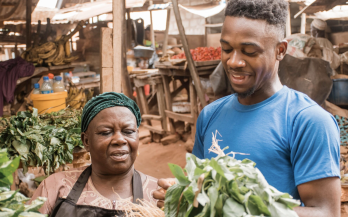
Business Engagement at UNFSS+4: The Experience of GAIN supported MSMEs (Interview with Max)
The Second United Nations Food Systems Summit Stock take (UNFSS +4) which held 27–29 July 2025 in Addis Ababa, co‑hosted by Ethiopia and Italy – closed with a powerful reaffirmation of political will, partnership, and accountability in support of sustainable, inclusive, and resilient global food systems transformation. It brought together 3,500+ participants, 145+ national delegations and 700+ non-state actors. Participants from governments, civil society, producers, youth, Indigenous Peoples, academia, and the private sector gathered for Plenary sessions, High-level Panels, Ministerial Roundtables, Investment Dialogues, and Stakeholder-led constituencies.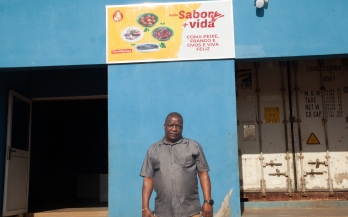
Mozambique: Nourishing rural markets with fresh and safe food supplies
Chimoio, Mozambique – A white Hino truck rattles under its own weight on the bumpy road, while its tires throwing particles of dust from the asphalt in the air from the district of Cantandica, Manica province, central Mozambique.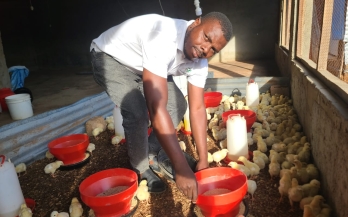
Mozambique: voice of a displaced entrepreneur in Cabo Delgado
Pemba, Mozambique – From the window of his house in Quissanga district, Cabo Delgado, Andrade Vitorino watched helplessly as his poultry farm collapsed due to strong winds and rains caused by cyclone Kenneth in 2019. But since the 2017, it is the armed conflict in Cabo Delgado province that affected his business and various economic activities, as well as the functioning of food systems in the province. “One day, a neighbour shouted that we were under attack, and we all ran away, leaving everything behind. A few days later I heard that everything had been burned down. Houses and everything, including my poultry,” said Andrade. Seated on a plastic chair and turning his back to his house made of clay, in one of Pemba's neighbourhoods, where he is starting new life he says, “I didn't have time to take anything. Just my documents. My house, my aviary and my dreams were left behind.”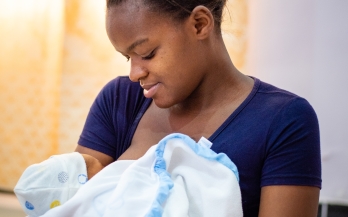
Promoting Breastfeeding for Healthy Planet
Breastfeeding not only contributes to positive nutrition and health outcomes, but also to environmental sustainability by significantly reducing the environmental footprint associated with the production, packaging, distribution and consumption of infant formula. The environmental benefits of breastfeeding are multi-faceted.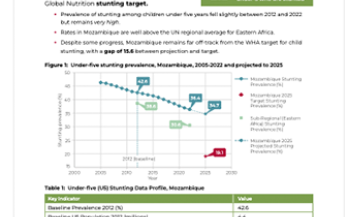
Mozambique Fact Sheet-WHA Global Nutrition Target
- 16/05/2025
WHA Global Nutrition Stunting Target 2012-2025 Achieve a 40% reduction in the number of children under-5 who are stunted WHA Global Nutrition Overweight Target 2012-2025 Ensure that there is no increase in childhood overweight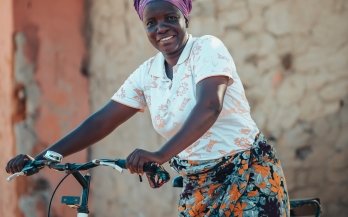
How women find hope in NutriBaik?
Previously, we showed how NutriBaik is changing lives through this story. Today, we talk to Ancha Monequete on why she “finds hope in NutriBaik”. Here we see how, through women the NutriBaik, women are playing their part in the functioning of food systems.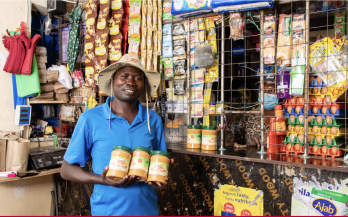
Nutrition Impact at Scale Profile
- 06/01/2025
NUTRITION IMPACT AT SCALE (NIS) Through the Nutrition Impact at Scale project, GAIN seeks to scale the impact of its work to increase access to safe and nutritious foods, especially for low-income consumers. By working with other organisations (Enterprise Support Organisations) that are willing and have the requisite capacity to attach a 'nutrition lens' to their work with small and medium enterprises (SMEs), Nutrition Impact at Scale (NIS) will enable a large-scale and accelerated nutrition impact for the larger African population. Funded by the Ministry of Foreign Affairs of the Netherlands, NIS uses a market systems development approach to improve food systems, increase inclusivity, and, ultimately, nutrition outcomes. The project leverages on the extensive experience GAIN have developed over the years of providing quality technical assistance, networking experience, knowledge sharing, building capacity of partners, and the provision of various tools and resources to MSMEs, to attach a 'nutrition lens' to the work of ESOs in Nigeria, Benin, Uganda, Ethiopia, Mozambique, and Kenya.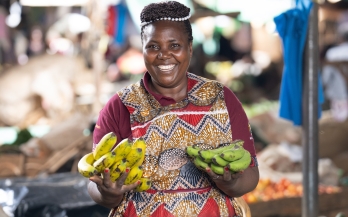
GAIN MOZAMBIQUE’S PORTFOLIO
- 01/01/2025
To address the triple burden on Mozambican’s Food system, GAIN in Mozambique is focused on innovative, scalable, and impactful initiatives aimed at identifying, updating, and disseminating legislation; developing businesses that produce and distribute safe and nutritious food; and implementing approaches to increase the demand and consumption of healthier diets by all Mozambicans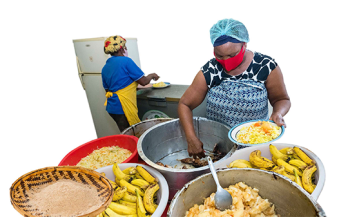
DESCRIBE, DIAGNOSE, DECIDE: A new dashboard to support Mozambique’s food systems transformation
- 06/11/2024
ToeffectivelytransformMozambique’snationalfoodsystemsinalignmentwiththeUnited Nations Food Systems Summit pathways, it is crucial to have access to current data and analytics. Mozambique’s Food Systems Dashboard, hosted by SETSAN1 (the National Secretariat for Food and Nutrition Security under the Ministry of Agriculture), plays a pivotal role in this transformation.